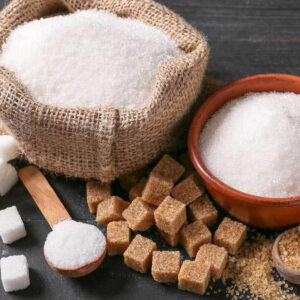The refining process of beet sugar vs cane sugar changes, affecting the final product’s characteristics.
Exploring the Differences in operation and Benefits Between Beet Sugar Vs Cane Sugar
In the cooking globe, the choice in between beet sugar and cane sugar is not just regarding sweet taste but includes a nuanced factor to consider of taste, application, and influence. While both sugars stem from different plants, each undertakes distinct manufacturing procedures that subtly affect their features and suitability for different recipes.
Origins and Manufacturing Processes of Beet and Cane Sugar

Walking cane sugar, on the other hand, comes from the sugarcane plant, an exotic grass indigenous to Southeast Asia yet now grown in tropical areas worldwide - beet sugar vs cane sugar. The manufacturing of cane sugar starts with the harvesting of cane stalks, which are crushed to launch the juice.

Nutritional Material and Health And Wellness Considerations

When contrasting the dietary material of beet sugar and cane sugar, it becomes evident that both kinds basically supply the exact same caloric worths, with around 16 calories per teaspoon and no significant nutrient variety. Both sugars, when eaten in excess, can contribute to elevated blood sugar degrees, a risk factor for diabetes mellitus and various other metabolic conditions. From a health and wellness perspective, regulating consumption of any type of type of sugar, whether from beet or cane, is suggested to stay clear of these prospective negative results on wellness.
Flavor Accounts and Culinary Applications
Regardless of their similar chemical frameworks, beet sugar and cane sugar vary subtly in flavor, which can affect their use in numerous culinary contexts. Walking cane sugar frequently lugs a hint of molasses, even in its polished form, offering a warm, caramel-like touch that enhances baked items, coffee, and chocolate-based recipes. On the various other hand, beet sugar is defined by its very refined, neutral preference, making it a versatile sugar that does not change the taste accounts of recipes.
Environmental Influence and Sustainability
While both beet and cane sugars are derived from plants, their ecological impacts vary significantly because of the distinctive methods of farming and processing needed for each. Sugar beet farming typically entails comprehensive automation, which can boost nonrenewable fuel source intake and carbon emissions. Nonetheless, beetroots can be expanded in cooler environments and call for much less watering, potentially minimizing water use compared to sugarcane. Sugarcane, on the various other hand, is commonly expanded in exotic regions where it relies heavily on watering and a much longer growing duration, boosting its water footprint.
In addition, the handling of sugarcane typically produces a substantial quantity of waste, including bagasse, which, although usable as read more biofuel, often adds to air pollution if shed inefficiently. Sugar beet processing utilizes even more of the raw products, leading to less waste. Both sectors face obstacles in lowering their ecological footprints, yet continuous developments in farming methods and waste monitoring are aiming to enhance sustainability.
Economic Elements Affecting the Sugar Market
The economic characteristics of linked here the sugar sector are significantly influenced by worldwide market needs and profession plans. In areas where sugarcane or sugar beet production is subsidized, producers may have a financial advantage that enables them to provide lower prices on the global market.
Additionally, changes in worldwide demand for sugar, influenced by dietary patterns and commercial usage in food, straight effect costs and manufacturing degrees. beet sugar vs cane sugar. Climate problems likewise play an essential duty, as they can significantly affect crop returns and, as a result, the supply chain. This irregularity introduces a level of economic uncertainty official statement that can lead to financial investment volatility in sugar manufacturing fields, affecting choices from growing to market approach
Verdict
To conclude, both beet and cane sugar have one-of-a-kind qualities that fit various culinary demands. While cane sugar conveys an abundant taste perfect for improving baked products, beet sugar's neutrality is ideal for lighter recipes. Nutritional resemblances regardless of, their distinctive manufacturing procedures and environmental impacts add complexity to the option between them. Thus, comprehending these distinctions aids cooks and customers make educated decisions that align with their health, culinary, and honest preferences.